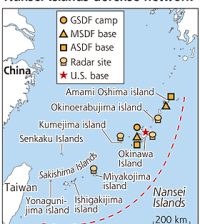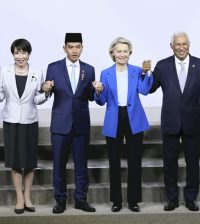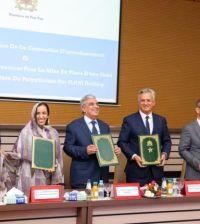- Washington “follows with interest” Morocco’s openness onto Africa (John Kerry)Posted 12 years ago
- The trial of South African Paralympic champion Oscar Pistorius opened in Pretoria on Monday.Posted 12 years ago
- USA welcomes efforts of King Mohammed VI in MaliPosted 12 years ago
- Egypt’s population reaches 94 millionPosted 12 years ago
- Mugabe celebrates his 90thPosted 12 years ago
- Moroccan Monarch to Build a Perinatal Clinic in BamakoPosted 12 years ago
- King Mohammed VI handed a donation of bovine semen for the benefit of Malian breeders.Posted 12 years ago
- Moroccan King’s strategic tour to Africa: Strengthening the will of pan African Solidarity and stimulating the south-south cooperation mechanisms over the continentPosted 13 years ago
- Senior al-Qaida leader killed in AlgeriaPosted 13 years ago
- Libya: The trial of former Prime Minister al-Baghdadi AliPosted 13 years ago
Be Educated to Address the Public: China Tightens Rules on Online influencers
27 Oct 2025 : China has introduced a new regulation governing online content creators, requiring anyone who produces material on professional or sensitive topics to hold verifiable qualifications. The “influencer law,” which came into effect on October 25, applies to subjects such as medicine, law, education, and finance.
According to the Cyberspace Administration of China (CAC), the measure aims to combat misinformation and protect the public from false or harmful advice. Officials argue that by ensuring content on regulated fields comes from qualified individuals, the new framework will raise the overall quality and reliability of online information.
Under the rules, influencers discussing professional matters must provide proof of expertise, such as a university degree, professional license, or recognized certificate. Major platforms including Douyin (China’s version of TikTok), Bilibili, and Weibo are required to verify creators’ credentials and ensure that videos or posts include accurate citations and disclaimers when necessary. For instance, creators must clearly indicate when information is derived from academic studies or when content incorporates AI-generated material.
In addition, platforms must educate users about their responsibilities in sharing online content. The CAC has also extended the restrictions to ban advertising for medical products, dietary supplements, and health foods within supposedly educational videos, in an effort to curb covert promotions.
Reactions to the policy have been mixed. Supporters view it as a necessary step toward establishing a more trustworthy digital environment, arguing that professional topics should be discussed by those with verified expertise to minimize public exposure to misinformation. They contend that, as social media increasingly replaces traditional channels of communication, stricter oversight is needed to maintain accuracy and integrity.
Critics, however, warn that the law could stifle creativity and curtail freedom of expression. By tightening control over who is deemed qualified to speak on certain issues, they fear the state could use the regulation to limit independent voices and restrict critical debate. Some analysts argue that the official definition of “expertise” may become overly narrow, granting authorities broad discretion to suppress alternative perspectives.
The debate reflects broader tensions in China’s digital governance model-balancing the desire to manage misinformation and uphold social stability with growing concerns over censorship and information control. As influencer culture continues to reshape public discourse, the new law underscores Beijing’s determination to extend regulatory oversight into a sphere once valued for its spontaneity and relatability.
For now, both supporters and skeptics agree on one point: the regulation marks a turning point in the relationship between expertise, authority, and expression in China’s online landscape.




